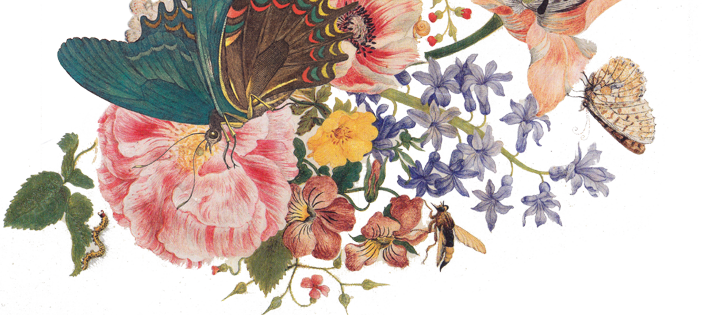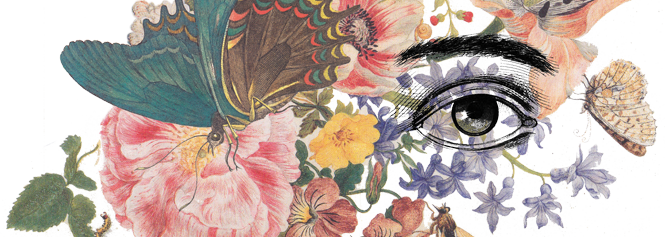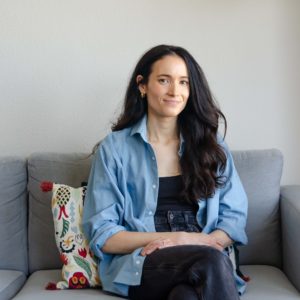
Sarah Hopkins, ’24, Wins a Taylor/Blakeslee Graduate Fellowship
Congratulations to Sarah Hopkins, ’24, for being one of seven science writers selected for a Taylor/Blakeslee Graduate Fellowship from the Council for the Advancement of Science Writing (CASW). Dedicated to defraying the cost of graduate education in the United States, the fellowships provide journalism students with $6,000 for the 2023-24 academic year.
Sarah will come to MIT this fall with a master’s degree in literature from the University of Oxford and a bachelor’s in liberal arts from Sarah Lawrence College. She has worked as a writer, editor, and communicator for social justice organizations, including the ACLU, where she translated complex legal concepts to non-expert audiences and to the media. In a CASW press release, Sarah stated that she plans to report on the intersection of law and science.
“As our lives become increasingly entangled with science and technology, the law will increasingly have to intervene to answer fundamental questions about boundaries and regulations for scientific advancements (or intrusions, depending on the implications, and on the point of view),” she wrote in her CASW application.
Congratulations, Sarah!
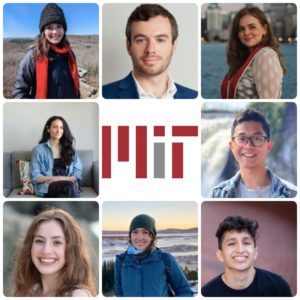
The GPSW Welcomes the Class of 2024
The GPSW is proud to announce our Class of 2024. The eight students who will be headed to Cambridge this fall bring a wealth of writing, editing, and research experience. We’re thrilled to welcome these students:
Eva Cornman holds a bachelor’s in biology and a minor in creative writing from the University of Illinois, Urbana-Champaign, and managed a clinical research laboratory that studies the human gut microbiome.
Noah Daly is a writer and reporter covering drug policy, psychedelic science, art, and medical tech innovation for The Daily Beast, Rolling Stone, Up Magazine, and Lucid News, among other publications. He served as an intern at Foreign Affairs Magazine and a graduate administrative aide at New York University’s journalism school.
Sophie Hartley studied human development and creative writing at the University of Chicago, where she wrote about wild boar, rewilding, and rural Montana’s pushback against bison conservation. She has done photojournalism work with the Marine Biological Laboratory and the New Hampshire State Parks and written fauna and flora identification guides for hikers in Arizona’s Apache-Sitgreaves National Forests.
Sarah Hopkins holds graduate and undergraduate degrees in literature from the University of Oxford and Sarah Lawrence College. She has worked as a writer, editor, and communicator for social justice organizations, including the ACLU, where she translated complex legal concepts to non-expert audiences and to the media.
Alex Ip is the Founder and Editor-in-Chief of The Xylom, a student-led nonprofit newsroom exploring how communities are influenced and shaped by science. He graduated with a bachelor’s in environmental engineering from Georgia Tech and is currently leading a team to translate the KSJ Science Editing Handbook into Chinese (Traditional and Simplified).
Hannah Richter holds a bachelor’s in environmental science and a minor in creative writing from the University of Chicago. She has completed internships at Circle of Blue, the Living on Earth radio show and podcast, and NASA on the Hubble Space Telescope team. She is currently writing an ebook for the Fermi Space Telescope.
Lily Stewart studied writing, literature, and biology at the University of Cincinnati and has served as an interpretive writer for local parks, a science communication intern at environmental organizations, a strategic foresight researcher focused on the future of misinformation, and an organizer in the reproductive justice movement.
Alex Viveros majored in biology and community health at Tufts University and served as editor-in-chief of The Tufts Daily campus newspaper. Alex was a member of the Politico Journalism Institute’s 2021 class and has interned at Science Magazine and The Broad Institute of MIT and Harvard, where he wrote about biological sciences, gene therapy, machine learning, and chimpanzees.
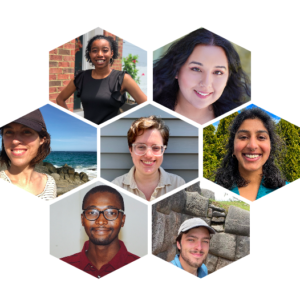
Join us for the thesis presentations of the Class of 2023! Be intrigued, educated and sometimes called to action. May 19, 2023
Presentations will begin at 10am on Zoom: https://mit.zoom.us/j/91333924079
Featured presentations:
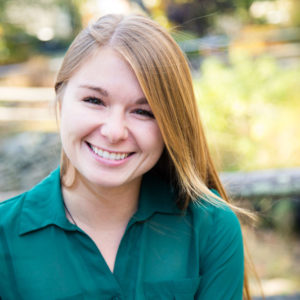
Claudia Geib, ’16, Reveals Secrets of the Elephants
Tomorrow, Claudia Geib, ’16, will see her first nonfiction book released in the wild. Secrets of the Elephant, a companion to the National Geographic series of the same name, hits shelves on April 4th. The book, co-authored with wildlife conservationist Paula Kahumbu, takes an intimate look at the complex intelligence, social lives, and behaviors of one of the world’s most iconic and endangered creatures. “Combining authoritative, cutting-edge knowledge with world-class photography, Secrets of the Elephants reveals behavior never before witnessed—and sounds a clarion call to honor and protect these magnificent animals,” according to the book’s press release.
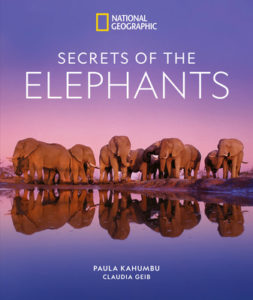
When she’s not writing books, Claudia is a producer on Gastropod, a podcast that looks at food through the lens of science and history, and a freelance science writer. Her bylines can be found in National Geographic, The New York Times, Hakai Magazine, Mongabay, Nautilus, and Sapiens Magazine, among other outlets.
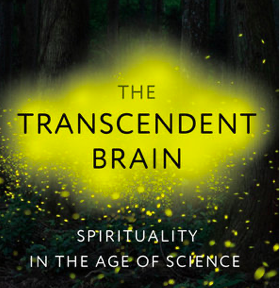
Alan Lightman is having a moment. Just weeks after the debut of his three-part PBS mini-series, Dr. Lightman, a GPSW Professor of the Practice of the Humanities, has published his latest book. The Transcendent Brain: Spirituality in the Age of Science explores mysteries that scientists haven’t yet unraveled and whether there’s room within those quandaries for spiritual experiences.
“Drawing on intellectual history and conversations with contemporary scientists, philosophers, and psychologists, Lightman asks a series of thought-provoking questions that illuminate our strange place between the world of particles and forces and the world of complex human experience,” a press release for the book states. “Can strict materialism explain our appreciation of beauty? Or our feelings of connection to nature and to other people? Is there a physical basis for consciousness, the most slippery of all scientific problems?”
In addition to The Transcendent Brain, Dr. Lightman has published more than 20 fiction and nonfiction books. His works have been translated into more than 30 languages. You can pre-order a copy of The Transcendent Brain here. Congratulations, Dr. Lightman.
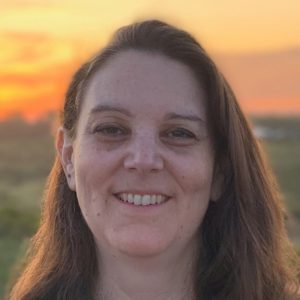
Karen Weintraub and USA Today Win ACHJ Reporting Fellowship
Congratulations to Karen Weintraub and the entire health reporting team at USA Today for winning a 2023 Reporting Fellowship from the Association of Health Care Journalists. Awarded to mid-career journalists who are pursuing year-long projects, Weintraub, who teaches feature writing in the GPSW, scooped up the award as part of a four-person team. Their project will focus on how diabetes care and outcomes highlight how, and why, the American healthcare system is broken as well as possible solutions to make it better.
From an ACHJ press release, “the fellowship covers the cost of attending seminars and AHCJ conferences and a $4,000 project allowance to defray the cost of field reporting, health data analysis, and other project-related research. Each project includes a $2,500 award upon completion. Recipients will continue their jobs during the coming year while receiving customized training, mentoring, and financial support for their projects.”
Karen currently covers a wide range of health topics at USA Today, including infectious diseases, public health, cancer, and genetics. Before joining the USA Today team, she spent a decade as a freelance health and science reporter, writing regularly for The New York Times, The Washington Post, and Scientific American, among other outlets. Congratulations, Karen.
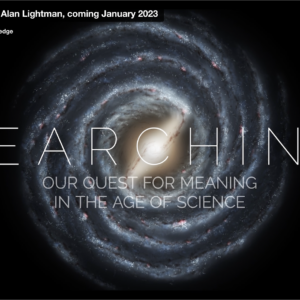
Alan Lightman Stars in New PBS Mini-Series
Join Alan Lightman, professor of science writing, in searching for meaning in the age of science. This three-part PBS series will premier in January 2023 and will be hosted by Dr. Lightman himself.
You can see the trailer here: https://vimeo.com/731091976/a7ebf79220
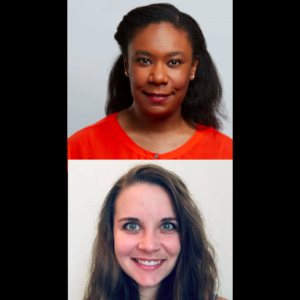
Congratulations to Kendra Pierre-Louis, ’16, and Maria Temming, ’17, for winning top honors at the AAAS Kavli Science Journalism Awards this year. Kendra won the Gold Award in the Magazine category for “How Rising Groundwater Caused by Climate Change Could Devastate Coastal Communities,” a cover story published late last year in MIT Technology Review. The piece shines a light on the complex ramifications of groundwater rise and why substantial research exists on the problem, but few solutions have been put into practice.
In a AAAS press release, judge Richard van Noorden, features editor for Nature, said, “Pierre-Louis’ gripping and memorable article about rising groundwater vividly weaves together human stories and science to explain this under-appreciated consequence of climate change.” In response to her win, Kendra said, “I’m proud to receive this award because it shows both how important it is to clearly articulate climate science and how vital it is to marry that science with an understanding of climate change’s impact on us as people.”
Maria Temming also scooped up a Gold Award in the Children’s Science News category as part of a team from Science News Explores. Winning alongside Sarah Zielinski and JoAnna Wendel, the team winning submission included three stories, all of which were partially written in a comic format: “Cockatoos Learn From Each Other How to Open Garbage Bins,” “A Panda Stands Out at the Zoo But Blends in the Wild,” and “Goldfish Driving ‘Cars’ Offer New Insight Into Navigation.”
“I loved all three stories and the wonderful way the well-written text jibed with the comics,” judge Christine Dell’Amore, online natural history editor for National Geographic, said in a press release. “I can imagine a kid getting really engaged in these stories, especially the cockatoo one. The goldfish study was really surprising and drew me in right away.” In a team statement, the winners said: “Even fun topics in science can sometimes be intimidating for kids, especially when it comes in large chunks of text. We thought comics would be the perfect way to hook a young audience and show them that science doesn’t have to be a slog.”
Congratulations to Kendra and Maria!
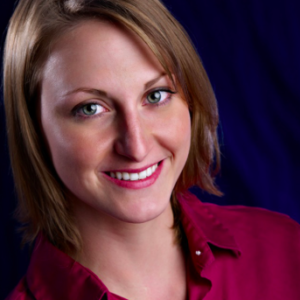
Rachel Becker, ’15, Wins Award for Excellence in Water Journalism
Congratulations to Rachel Becker, ’15, for winning the first-ever Water Education Foundation’s Rita Schmidt Sudman Award for Excellence in Water Journalism. Dedicated to recognizing journalistic work that shines a light on complex water issues in California and the West, the award comes with a $1,000 cash prize and access to the Water Education Foundation’s vast educational resources.
Rachel is currently a reporter who covers the water beat for the nonprofit, nonpartisan outlet CalMatters. “Covering water means covering the lifeblood of California,” Rachel said in a press release. “On behalf of the CalMatters team that’s behind every story on the water beat, I’m so honored to accept this award.”
In addition to this new award, Rachel also won first place for Outstanding Beat Reporting from the Society of Environmental Journalists in 2021 and was part of a CalMatters team that scooped up 17 California Journalism Awards last year. Prior to reporting for CalMatters, Rachel was a staff science reporter at The Verge, where she wrote stories and hosted videos covering a range of beats including climate change, nicotine, and nuclear technology. Her byline has also appeared in NOVA Next, National Geographic News, Smithsonian, Slate, Nature, Nature Medicine, bioGraphic, and Hakai Magazine, as well as the PBS Digital Studios video series Gross Science and the YouTube show MinuteEarth.
Congratulations, Rachel!
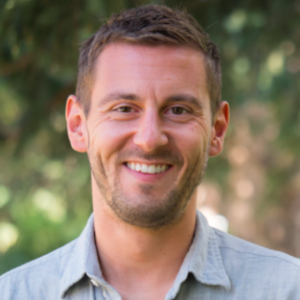
Trent Knoss, ’13, Wins an NASW Excellence in Institutional Writing Award
Congratulations to Trent Knoss, ’13, for winning the 2022 Excellence in Institutional Writing Award in the long-form category from the National Association of Science Writers. Trent claims the win alongside Kristan Uhlenbrock, Nicole Delaney, Juliette Luini, Catherine de Medici Jaffe, and Jason Paton, all from the Institute for Science and Policy at the Denver Museum of Nature and Science.
The team landed their victory for the second episode of Coal at Sunset: A Colorado Town in Transition, a podcast that chronicles how a coal community in Craig, Colorado, is affected by and coping with a transition to cleaner energy sources. NASW judges said that Episode 2, which covers the science and economics of coal, “takes a broad look at the issues and realities of coal and climate change through concrete stories and voices. The first-person account of what it’s like to see coal combusting in the furnace up close — ‘a wall of flame generating so much heat and light that it requires a tinted welding mask to view safely’ — is especially powerful.” Judges also noted that the podcast highlights diverse viewpoints and “does a masterful job explaining the rich history of coal as an energy source, the science of how it works, science policy, and the climate science that’s fueling the change in the state’s energy landscape.”
The Excellence in Institutional Writing Award isn’t the only accolade that Trent has scooped up this year. Trent was also an inaugural recipient of the Eric and Wendy Schmidt Awards for Excellence in Science Communications for his work on Coal at Sunset. Congratulations, Trent!
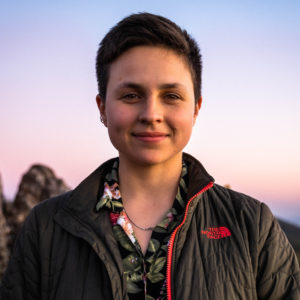
Kelso Harper, ’21, Lands AGU Accolade
Congratulations to Kelso Harper, ’21, for landing an honorable mention for the 2022 David Perlman Award for Excellence in Science Writing presented by the American Geophysical Union. Named for the late San Francisco Chronicle science editor, the award recognizes excellence in science news reporting published with deadlines of one week or less.
Kelso’s story, “Miniature Satellites Reveal Cause of Deadly Uttarakhand Flood That Devastated Dams,” was published in Scientific American on February 12, 2021. It covers how images from more than 130 tiny “cube” satellites upended theories that flash flooding in India’s Dhauliganga river valley was caused by glacial lakes. Instead, the images show that a hanging glacier had broken from a nearby mountain, causing landslides and raising concerns about how area hydropower projects might be affected by similar events in the future.
Kelso’s honorable mention comes on the heels of other accolades. Earlier this year, she won a 2022 Jackson Wild Media Lab fellowship and was a finalist for a National Institute for Health Care Management Digital Media Award. Congratulations, Kelso!
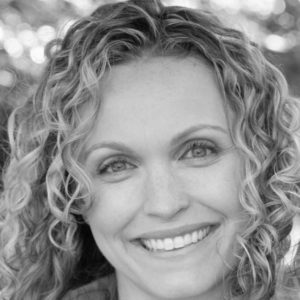
Kate Gammon, ’07’, Wins RESP Fellowship
Congratulations to Kate Gammon, ’07, for being selected as a 2022-2023 Religion and Environment Story Project (RESP) Fellow. Hosted by Boston University, the fellowship offers training for journalists, educators, and public-facing scholars who are interested in the intersection between religion and the environment. In addition to receiving on-the-job training, fellows also meet for seminars “that will include wide-ranging discussions on religion, spirituality, the environment, climate change, and journalism.” Fellows also receive a small stipend and commit to producing at least one story for a general audience.
Kate’s bylines have appeared in The New York Times, The Atlantic, WIRED, The Guardian, Undark, Popular Science, MIT Technology Review, Nature, and Hakai Magazine, among other outlets. In years past, she has also landed fellowships through the Society for Environmental Journalists, Columbia University, the Woods Hole Oceanographic Institution, the National Press Foundation, and others.
Kate isn’t the only GPSW grad that’s been an RESP fellow. Kendra Pierre-Louis, ’16’, also made the list in 2021. Congratulations, Kate. We can’t wait to see the projects that are yet to come.



